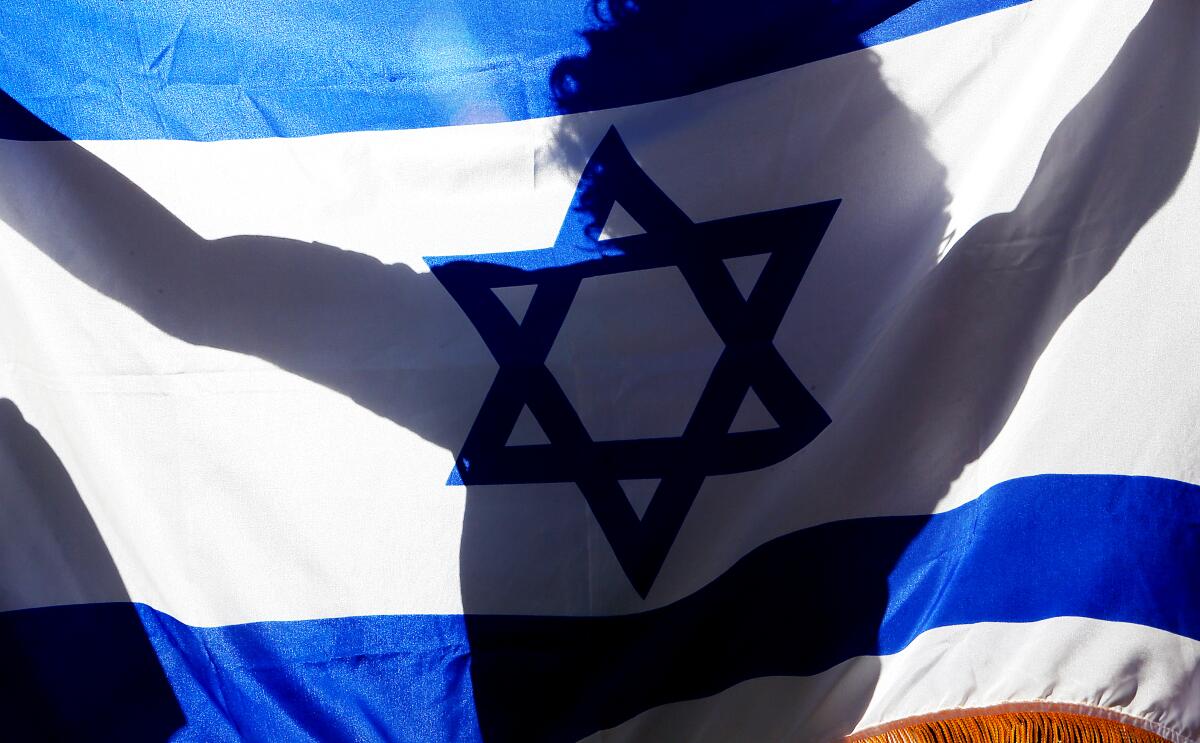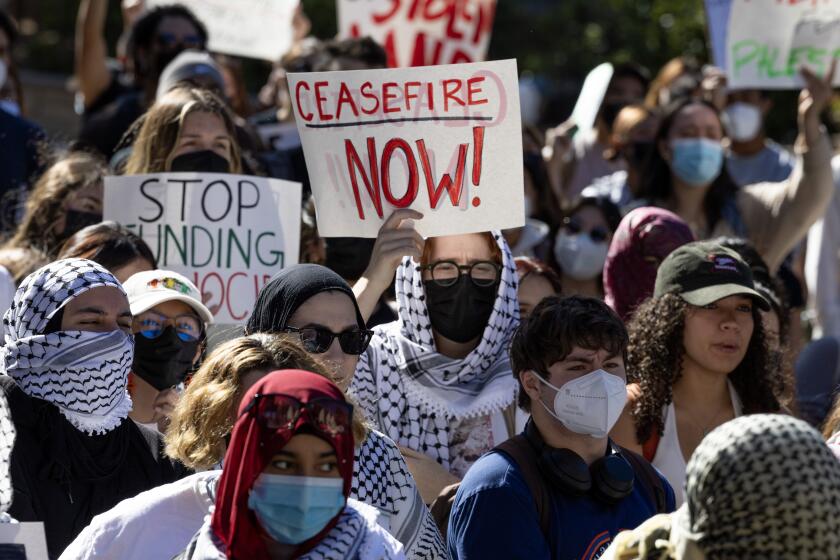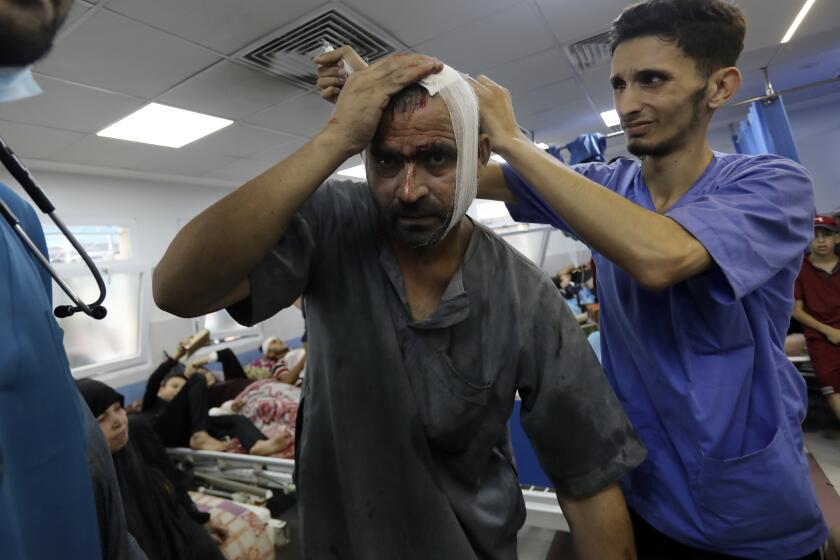Too much heated rhetoric on campus. Bring informed debate back to universities

- Share via
At moments like this, when violence in the Middle East has reached a fever pitch that has left the world horrified, universities have an important role to play in convening open debate. Or at least they used to.
The past weeks could have been the perfect time for relevant learning on the Israel-Hamas conflict, an antidote to the extraordinary campus strife we are seeing at the University of California and elsewhere across the nation. Instead of painting others as the enemy, people might have searched for common ground, or at least deeper understanding.
Institutions of higher education could have called on their experts, such as those in history, geography, international relations and religion to hold seminars and teach-ins for students and community members. They could have organized talks and speaker panels in which people listened to each other instead of belittling and insulting those with different backgrounds and views. How many people, after all, truly know the history and understand the current politics of the Middle East?
The Israel-Hamas war is roiling the University of California amid controversy over faculty political statements and the harassment of students.
This is a big part of what students should be getting out of college: deep learning, shaped by debate and discussion, leading to informed opinion. Unfortunately, as the roiling accusations and fears on U.S. colleges campuses show, that has become hard to achieve.
When did universities become places where people started conversing less and expressing open hostility more?
There are no easy answers, of course. During the 1960s and 1970s, there were plenty of campus demonstrations and even violence. Each era has its own form of protest and passions. Society changes and so does conduct in many institutions.
Israel’s quest to root out Hamas has inflicted indiscriminate death and destruction on Gaza and Palestinian civilians. Humanitarian pauses are no longer enough.
The American Assn. of University Professors believes that free discussion became more easily chilled about a decade ago, when some students began calling for trigger warnings before classroom discussions of topics they might find upsetting; that led to demands that faculty members provide trigger warnings on assigned literature.
The flood of social media, often created to fuel outrage, and political polarization during the Trump era certainly haven’t nurtured civility.
No wonder that when faced with gut-wrenching news like the Israel-Hamas war, many students react in hostile ways that chill the speech of others and make their fellow students feel threatened. Unfortunately, in some cases, their professors do the same or worse.
Vehement student protest has a time-honored place on campus. Students should be angry about injustice; how else will they fight it? But protest should be based on verified information, and should lead to discussion devoid of vituperative insults, harassment or threatening language. The opposing factions might not end up agreeing; in fact, they probably won’t. But they may end up with a deeper understanding of each other’s views and becoming better informed.
Instead of helping students reach that point, many universities and even departments within them have been staking out positions on one side or another of the Mideast debate. It’s unhelpful at best. If a university or academic department says it stands behind Israel, Palestinian students feel unwelcome at their own school; if the department berates Israel or casts doubts on its right to exist, Jewish students feel hated by their professors and threatened on campus.
Earlier this week, University of California President Michael Drake rightly put it this way: “The war in Israel and Gaza presents a complex set of intersecting issues that require multiple solutions on multiple fronts. Today we are doubling down on who we are: an educational institution that’s guided by facts and data, but also a moral compass that helps us find our way to compassion and understanding in difficult moments.”
UC will spend $2 million on education programs to foster better understanding of antisemitism and Islamophobia and to teach students about the history of the Middle East. An equal amount will go to teach UC leaders and staff on how to be true educators and helpers.
Drake has shown the way. With luck, his example will lead universities back to their critical mission of convening informed, intelligent and inclusive discussion about the most difficult issues facing the world.
More to Read
A cure for the common opinion
Get thought-provoking perspectives with our weekly newsletter.
You may occasionally receive promotional content from the Los Angeles Times.











